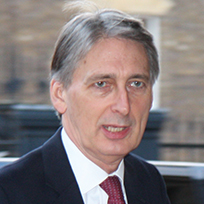News review – April 2019
March has been a momentous month – the ‘will it/won’t it happen’ of Brexit; the heating up of ‘no deal’ planning by the NHS; a spring statement from the chancellor that went by almost unnoticed; proposals to alter the basis on which access is measured; and significant changes at the top of health management in England.
Starting with the latter development, NHS Improvement confirmed that chief executive Ian Dalton is to step down following the introduction of a new joint structure for NHS England and NHS Improvement. A single chief executive – NHS England’s Simon Stevens – and chief operating officer will oversee both bodies. The latter will also be NHS Improvement chief executive, reporting directly to Mr Stevens and Dido Harding, NHS Improvement’s chair. The seven regional directors, the national director for emergency and elective care and the national director for improvement will report to the chief operating officer. Mr Dalton said the new role would be different in scope and nature to the role he took on at NHS Improvement when he first joined. As a result, he has decided to look for a new challenge but will help in the management of the transition to the new structure over the coming months.
 The next spending review will be launched before the summer if a deal for exiting the European Union was agreed over the next few weeks, chancellor Philip Hammond said in his spring statement. The chancellor said the review would cover three years and would be concluded alongside the autumn Budget. The review is expected to set health spending not included in the £20.5bn NHS England budget increase announced in June last year, such as for capital and public health, as well as social care.
The next spending review will be launched before the summer if a deal for exiting the European Union was agreed over the next few weeks, chancellor Philip Hammond said in his spring statement. The chancellor said the review would cover three years and would be concluded alongside the autumn Budget. The review is expected to set health spending not included in the £20.5bn NHS England budget increase announced in June last year, such as for capital and public health, as well as social care.
NHS performance against access targets feature regularly in this column, but the basis on which they are calculated in England would be rewritten under proposed changes. In the interim report on his clinically led review, national medical director Stephen Powis has proposed abandoning the four-hour waiting target in A&E in favour of rapid assessment and prioritisation based on patients’ needs. A one-hour treatment target would be introduced for patients with life-threatening illnesses and those with a mental health crisis. Other proposals include changes to cancer access targets. The proposed changes will be field tested during 2019/20, which will be a transition year between the old targets and new standards.
A&E attendances were 7.3% higher in February than in February 2018, according to NHS England. It said 84.2% of patients were transferred, discharged or admitted within four hours – 6.3% more than 12 months earlier. Emergency admissions were up 5.7% in the 12 months to January. The number of completed referral-to-treatment pathways in the 12 months to January was 0.8% higher than the previous 12 months. Some 86.7% of those on the waiting list had waited fewer than 18 weeks – missing the 92% target.
Waiting times, staff shortages and inadequate funding were the top three reasons for dissatisfaction with the NHS, according to the 2018 British Social Attitudes survey. It said public satisfaction with the NHS is at its lowest level since 2007. The survey, published by the Nuffield Trust and the King’s Fund, said that there was a drop of three percentage points on the 2017 figures. It now stands at 53%. The think-tanks also said that satisfaction with general practice has also declined over the last 10 years and in 2018 was at its lowest level since the survey began in 1983. Almost a quarter (24%) of respondents were dissatisfied with the service – double the level of dissatisfaction in 2009.
MPs said they were concerned about the potential impact of commissioning reforms on patients. In a report, the Commons Public Accounts Committee said many clinical commissioning groups were underperforming. It insisted CCGs must improve, particularly as the reforms will give CCGs responsibility for commissioning services across a larger area. Under the NHS long-term plan integrated care systems (ICSs) will be established across England and it is expected there will be one CCG per ICS. This will mean a significant reduction in the number of CCGs. The committee asked NHS England to report back before the end of the year on the future structure and on actions it has taken to ensure all CCGs are performing effectively and have high-quality leadership.

Wales health minister Vaughan Gething announced the introduction of a locum register for primary care from April. He said the All Wales locum register will be the first of its kind in the UK. It will help the Welsh government to understand the locum market better and how it can support general practice in future. Locum GPs will have to join the register to access the new state-backed indemnity scheme, he added.
NHS Improvement has placed Isle of Wight NHS Trust in financial special measures. The trust, which is also in special measures for quality reasons, said its financial position had been getting worse over some time. This deterioration was due to investment in needed improvements and increased demand. Its costs had increased significantly, due to recruitment difficulties and other pressures related to its location. It is working with the local health and social care system to plan and deliver improvements, and with the NHS Improvement financial special measures team to ensure its clinical services are financially sustainable.
The nursing associate programme will be expanded with a £42m funding boost, Health Education England (HEE) has confirmed. HEE chief nurse Lisa Bayliss Pratt said the funding would allow for a further 7,500 trainee nursing associates by 2020. Around 1,800 nursing associates are expected to qualify in the early part of this year. The role is designed to bridge the gap between healthcare assistants and registered nurses.
The Royal College of Radiologists warned that a shortage of specialists could threaten the ability of the NHS to offer cutting-edge cancer care. Its census of 62 major cancer centres found that 7.5% of consultant posts were vacant, with most unfilled for more than a year. Services were being maintained through overtime – an average six hours a week per full-time doctor. Though doctor numbers in general are increasing, the college said this was not enough to meet demand, particularly given the number of doctors who are retiring.
QUOTES
‘Now is the right time to look again at the old targets which have such a big influence on how care is delivered, to make sure that they take account of the latest treatments and techniques, and support, not hinder, staff.’
National medical director Stephen Powis calls for changes in the measurement of patient access to the NHS
‘In the short term at least, the promise of more money doesn’t appear to buy satisfaction. The public identified long-standing issues such as staff shortages and waiting times among the main reasons for their dissatisfaction and cash alone will not solve these.’
King’s Fund senior fellow Ruth Robertson says the NHS must fix other issues besides money to regain public approval
 ‘It has been a privilege to be part of the national leadership of the NHS. I therefore feel a degree of personal regret that I will not be part of the joint organisation that will turn the NHS long-term plan into action, but it is the right decision to make this change at this time.’
‘It has been a privilege to be part of the national leadership of the NHS. I therefore feel a degree of personal regret that I will not be part of the joint organisation that will turn the NHS long-term plan into action, but it is the right decision to make this change at this time.’
Announcing his departure, Ian Dalton throws his support behind the new joint management structure for NHS Improvement and NHS England
 ‘Standards must improve significantly as CCGs take on the commissioning of services across larger populations – a change that runs the risk of them losing focus on the particular healthcare needs of local people.’
‘Standards must improve significantly as CCGs take on the commissioning of services across larger populations – a change that runs the risk of them losing focus on the particular healthcare needs of local people.’
PAC chair Meg Hillier argues that CCGs must improve if they are to deliver the long-term plan
From the HFMA
Finance staff are going to have to get to grips with environmental sustainability as the NHS seeks to transform services to meet demand. So says Sandra Easton (pictured), chair of the HFMA Environmental Sustainability Special Interest Group, in a blog for the association’s website.
 ‘This will involve learning a whole new language and understanding data beyond the pound signs,’ she adds. The long-term plan highlighted NHS improvements in environmental sustainability, such as significant reductions in water consumption and its carbon footprint. But the plan says there is more to do, including further reducing the carbon footprint and cutting air pollution. The committee is well-placed to spread best practice, increase awareness and influence policy, says Ms Easton, who is stepping down as chair. Finance managers interested in joining or chairing the committee should email [email protected]
‘This will involve learning a whole new language and understanding data beyond the pound signs,’ she adds. The long-term plan highlighted NHS improvements in environmental sustainability, such as significant reductions in water consumption and its carbon footprint. But the plan says there is more to do, including further reducing the carbon footprint and cutting air pollution. The committee is well-placed to spread best practice, increase awareness and influence policy, says Ms Easton, who is stepping down as chair. Finance managers interested in joining or chairing the committee should email [email protected]
In a blog on health and social care integration, HFMA policy and research manager Sarah Day looks at the experience of the devolved nations. The NHS in England is moving in a similar direction, but presentations at the HFMA’s fourth annual integration summit suggest the English system should know that it takes time and success is built on good relationships and trust.
More guidance is needed to effectively measure mental health investment, says Ms Day in a separate blog. The disparity between perceived investment and service transformation must be addressed to achieve the changes required in government policy, she concludes.
Related content
We are excited to bring you a fun packed Eastern Branch Conference in 2025 over three days.
This event is for those that will benefit from an overview of costing in the NHS or those new to costing and will cover why we cost and the processes.